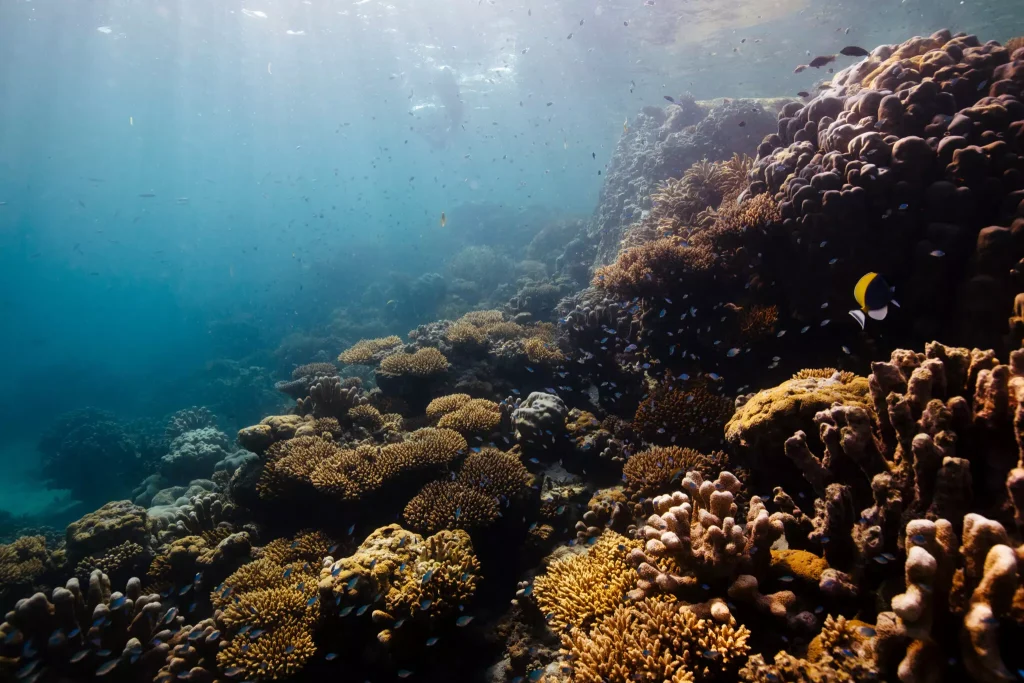TOURISM – THE CAUSE OF OR SOLUTION TO OVERFISHING OF REEF FISH IN THE MALDIVES?
December 10, 2020 by Shaha Hashim
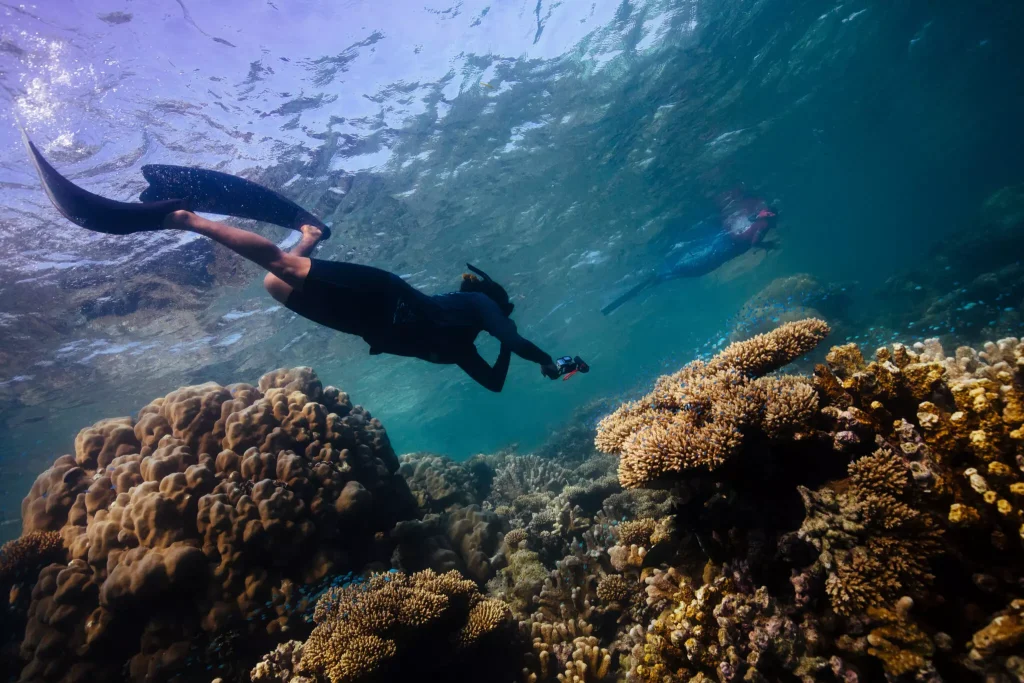
Shaha Hashim, BLUE’s Maldives Project Manager, gives a personal account of changing fishing habits in the Maldives and how the tourism industry may be responsible.
I grew up eating tuna for every meal. Not just any tuna, but skipjack, caught one-by-one using poles and lines from the pelagic waters of the Maldives. In the morning it was either a tuna curry, rihaakuru (fish paste) or mas huni (tuna mixed with coconuts, onion, chili and lime) eaten with roshi (flat bread). In the afternoons it was always garudhiya (tuna soup) eaten with white rice and condiments. For dinner we had a repeat of whatever we had for breakfast.
This was the typical diet of almost every Maldivian household in the 80s. Chicken and mutton were only cooked on special occasions as they were difficult to obtain, after all, these were small islands with few land animals.
“But there were plenty of other fish in the sea, weren’t there? What was this weird obsession with tuna?”, you may ask. I remember the day my grandfather brought home a reef fish. The seas were rough, the fishermen had not been able to go fishing for days and this was all that was available in the market. My grandmother got very upset and refused to prepare the fish. It was too smelly and slimy. Instead, she chose to cook with the smoked tuna which had been preserved to last for a long time. Maldivians’ preference for tuna continues to this day, which is evident from the world record we hold for the highest per capita tuna consumption rate in the world (142kg in 2016).
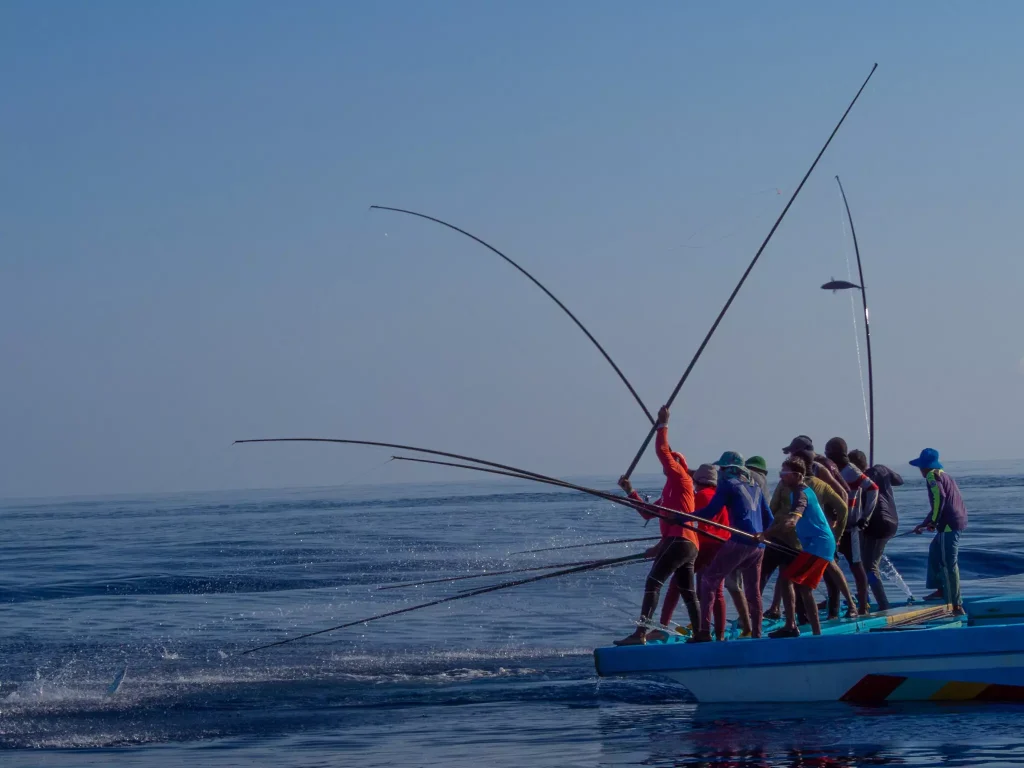
However, over the years, our diet has changed substantially. Not only do we have the option to buy all the different varieties of meat available in the global market, our preference of local seafood has changed as well. Reef fish are now consumed at almost every social gathering and it is the preferred fish on dinner tables. A barbeque wouldn’t be complete without a snapper, grouper or emperor, the prized fish for such occasions. This has unfortunately led to declines in reef fish catch in some areas. Experienced fishermen from Male’ atoll who target red snappers shared that they now have to travel longer and further to fish due to declines in catch and averages sizes of fish.
Tourists who visit the country catch and eat reef fish, too. A study conducted in 2014 by the Marine Research Center found that the tourism industry was the main market for reef fish in the Maldives. However, the scale of the exploitation of reef fish by the industry is poorly understood, as this fishery has gone unchecked ever since the introduction of tourism to the Maldives in the 1970s.
1.7 million tourists visited the Maldives in 2019. That’s more than three times the size of the local population. Almost all tourism establishments offer recreational fishing trips to coral reefs, which is an additional revenue source for the businesses. In 2014, it was estimated that 68,000 individual fish were caught annually in the resort recreational fishery of Maldives. Today, there are many more resorts, guest houses and liveaboards, so it’s likely that the number of fish caught in recreational fishing has increased substantially.
Coral reefs sustain the Maldivian tourism industry. Tourists love to see vibrant, colourful fish on the reefs but, ironically, they also love to catch and eat them too. For a marine conservationist like me, working to promote reef resilience, this is a very troubling thought. Climate change predictions tell us that we cannot continue to do business as usual if we are to have a fighting chance to exist on these islands in the future.
For a reef to be healthy and be able to perform its protective functions, it needs a healthy balance of reef fish populations. Each species has a purpose on the reef and an imbalance can change the dynamics of the whole system. Unlike tuna, reef fish are long-lived, late to sexually mature and their reproductive behaviour make them highly susceptible to overfishing.
Let’s look at the red snapper, for example. The oldest red snapper has recently been aged at a whopping 79 years. They are believed to become sexually mature at 9 years or 50-55 cm. That means they would only be able to replenish their population if they survive beyond this age. Worryingly, fishers typically target the bigger fish due to their high returns. As bigger fish disappear on reefs due to the long-lived nature of reef fish, fishers begin to target the immature, smaller fish, reducing the population replenishment potential, and this could eventually cause a stock collapse.
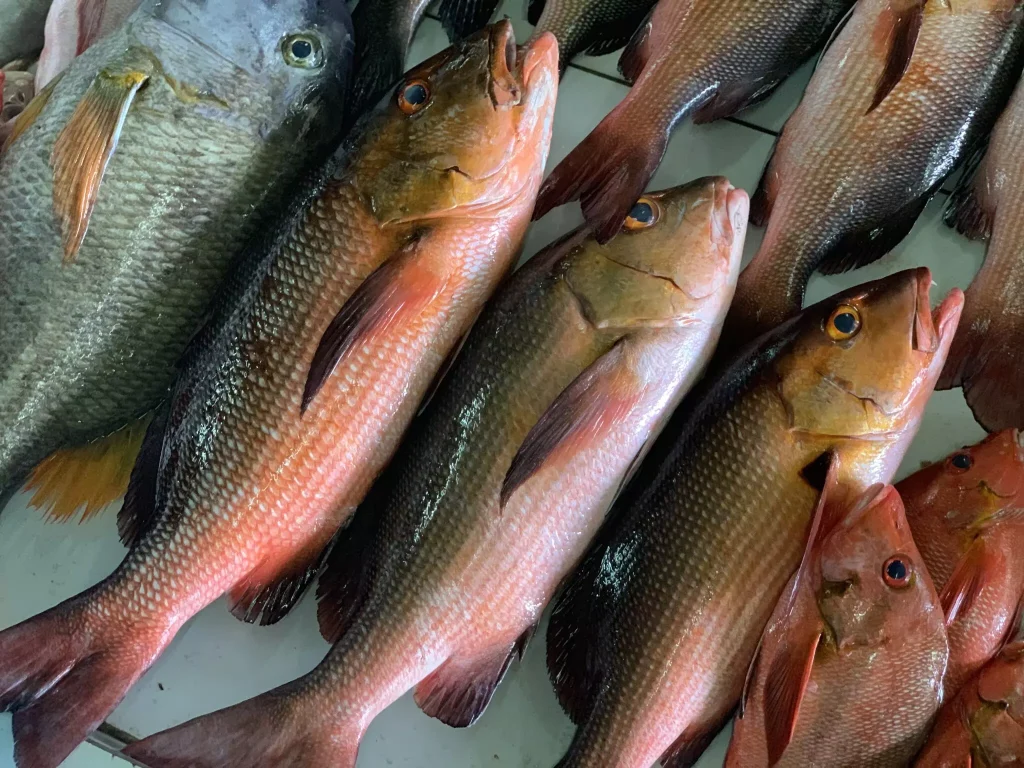
Resorts also directly remove fish from the reefs by taking part in recreational reef fishing which is often a cause of conflict with local fishing communities. As reef health and fish stocks decline, these conflicts will no doubt worsen. I believe it’s a fair compromise for tourist resorts to discontinue their recreational coral reef fishery altogether in the interest of their business longevity and improved relations with the local communities.
The tourism industry has a huge role to play. The question that needs to be asked is whether the short-term revenue generated from recreational reef fishing is worth the negative impacts it can have on the long-term survival of the business. If reef health declines, the islands would be more vulnerable to climate change impacts, perhaps threatening their existence.
Export of reef fish has also increased significantly over the last few decades putting additional pressure on our reef fish stocks. Maldives is the only country in the Indian Ocean still exporting live groupers for the live food fish trade in Asia and this makes up a significant proportion of reef fish exports from the country (80 per cent of the total exports in 2012). Overfishing of this important reef fish group has decimated their populations across the country, with 90 per cent of groupers caught now below their maturity sizes. Maldives needs to consider closing the export of reef fish altogether and creating a domestic market for sustainably caught fish in the tourism industry, as market demand is crucial to ensure the sustainability of the fishery.
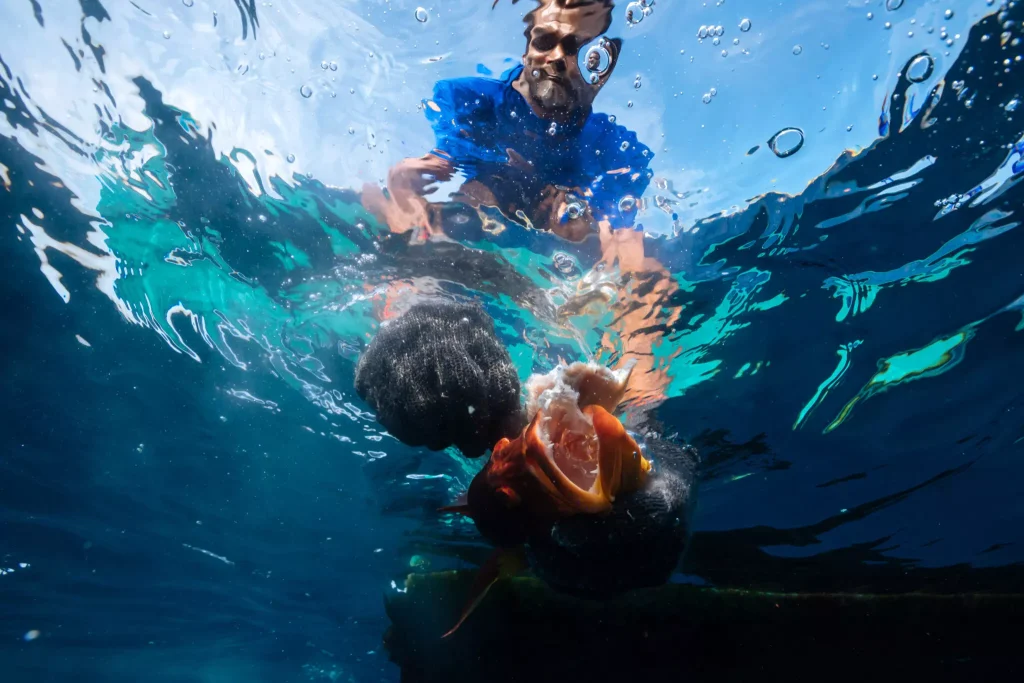
The Maldives Ministry of Fisheries, Marine Resources and Agriculture is currently working on developing Fisheries Management Plans for all fisheries in the Maldives, including that of reef fish. This is an important first step to lay down the rules and procedures for carrying out these extractive activities. While there are some promising signs, it is crucial that these management plans have sufficient control mechanisms to protect vulnerable and ecologically significant reef fish species, to protect their breeding and nursery grounds and to establish stringent size limits based on the best available global evidence. We no longer have the time to determine what we already know through expensive research to justify their due management, as global temperatures rise and reef health deteriorates further.
When I dive on the reefs now, I worry. Back in the 1990s when I first started snorkelling, the reefs were so different. They were filled with beautiful fish and healthy corals. Since then, several coral bleaching events have taken place, and scientists warn that, as the planet continues to warm, coral bleaching events will occur more frequently. I worry that our reefs might not be resilient enough to recover from these shocks due to the over-extraction of reef fish populations. I worry that we might not be able to sustain our industries that depend on the health of our reefs. I believe it is a moral responsibility of the tourism sector to discontinue extraction of coral reef fish on their recreational fishing trips and to create a market demand for sustainably caught fish in the Maldives.
